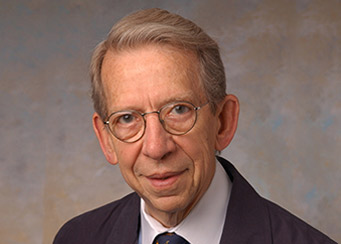Related Topics
Right Angle Club, 2018
New topic 2018-02-03 03:54:38 description
Bob Reinecke

|
| Robert D. Reinecke, MD |
Bob Reinecke died this year, aged 88. He had been my doctor, and I had been his. Born in Kansas, he had originally been a an oculist, running a jewelry shop, but grew dissatisfied and went to optometry school, which dissatisfied him even more, so he went to medical school in Chicago and eventually became an ophthalmologist, rising to chief physician of Wills Eye Hospital, and ultimately to be President of the American College of Ophthalmology. When he returned from the induction ceremony in New Orleans, I asked him how many people were in the audience and was told there were three thousand of them. The source of this adulation was the invention of computerized eye surgery for cross-eyes, as well as the connection between albinism and strabismus. There is little doubt he invented the subjects, as well as the accepted treatment of them.
As those who remember Dorothy and the "Wizard of Oz", Kansas is famous for wind, cyclones, and tornadoes, and Bob grew up absolutely hating windstorms. So one of the hidden motivations for moving around the country was to avoid the wind. Someone told him the peculiar fact that Albany, New York has the least wind of anywhere, so he moved there. I have no idea why there is so little wind in Albany, but it also has a remarkable number of fish. His farm outside Albany would commonly produce fifty trout a day, which he would unhook and throwback. That certainly made him eligible for all manner of fishing championships while he was otherwise occupied with investigating cross-eyes and nystagmus, Albinos and what-not.
When I got to him, he had serum cholesterol of more than four hundred, and a history that almost no one in his family lived to be fifty. He was covered with lumps which we called cholesteatomas. I suggested he exercise more, and shortly thereafter statin drugs came along. It was a great pleasure to watch the lumps disappear, but he never quit exercise. He regularly ran fifty miles on weekends and five miles during the week; I'm not sure if he won the Boston Marathon, but it certainly was a possibility. As mentioned, he lived to be 88.
On a speaking trip to India, he learned how to sew shirts, and thereafter sewed his own. He was an accomplished pianist, and for years was a soloist bass singer, wood carver and carpenter. The University of Kansas has two professional chairs named for him and one large building. Wills Eye and the Pennsylvania Hospitals are two blocks apart, and he represented Ophthalmology for twenty-five years in the House of Delegates of the AMA, while I represented Pennsylvania, and so we frequently walked together the five blocks to the Union League for lunch. Medical politics played a prominent role in these walks, but we found ourselves on opposite sides of the socialized medicine controversy. Eventually, he became a leading advocate of the single-payer approach, while I was 180 degrees away, leading the troops into Health Savings Accounts. In many ways, the epochal moment was a debate at Haverford College, with Harris Wofford running for Senator, Bob coaching him one way, and I the opposite. Wofford won the election, but Wofford said I won the debate. And as you notice, the AMA betrayed us both. Subsequent to that election, we both stuck with our friends in Washington respectively, but never once wavered in our friendship.
We will miss him.
Originally published: Sunday, February 11, 2018; most-recently modified: Wednesday, May 15, 2019